#Nergissah Sultan
Text

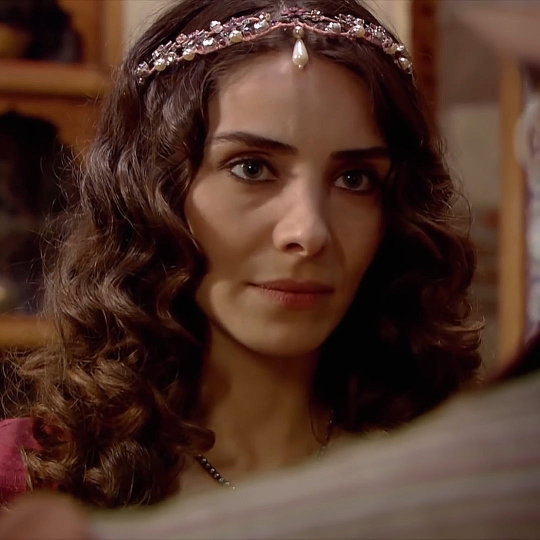




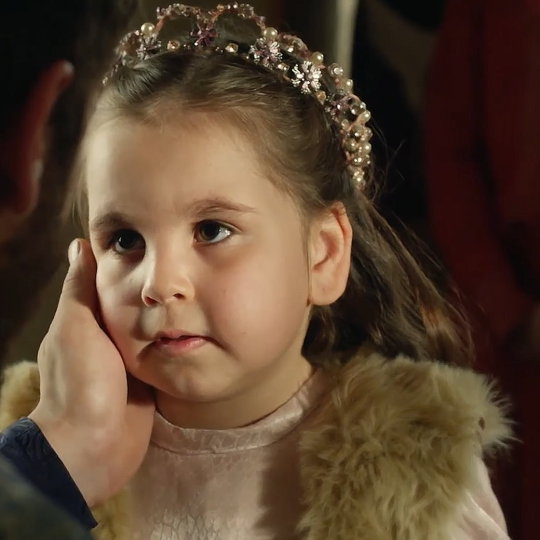
This pink tiara with a pearl drop was first worn by Hatice Sultan in the fourth episode of the first season of Magnificent Century. It was worn again by Mahidevran Sultan in the nineteenth episode of the same season. Gülfem Hatun can also be seen with it in the tenth episode of the second season. The tiara appears again on Mihrimah Sultan in tenth episode of the third season. During the use on her, the pearl drop eventually gets removed. The fourth season saw the tiara three times, first on Nurbanu Sultan in the tenth episode, then on Nergisşah Sultan in the eighteenth episode and lastly on Ayşe Sultan in the twenty-ninth episode.
#Muhteşem Yüzyıl#Magnificent Century#period drama#costume drama#historical drama#Hatice Sultan#Hatice Sultan (Daughter of Hafsa)#Mahidevran Sultan#Gülfem Hatun#Gulfem Hatun#Mihrimah Sultan#Mihrimah Sultan (Daughter of Hürrem)#Nurbanu Sultan#Nergisşah Sultan#Nergissah Sultan#Ayşe Sultan#Ayse Sultan#Ayşe Sultan (Daughter of Şehzade Bayezid)#reused jewellery#recycled jewellery
26 notes
·
View notes
Text


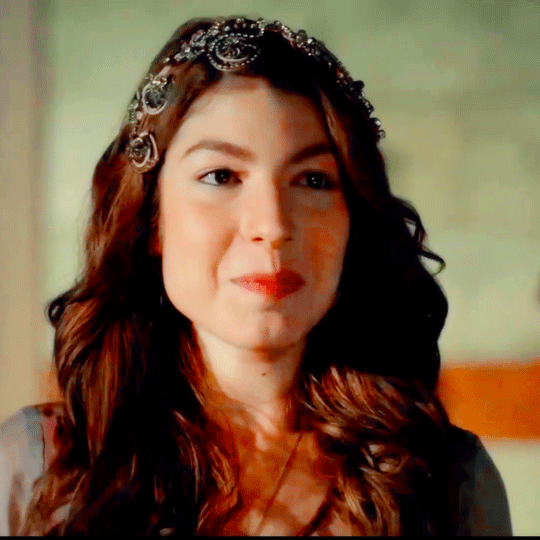
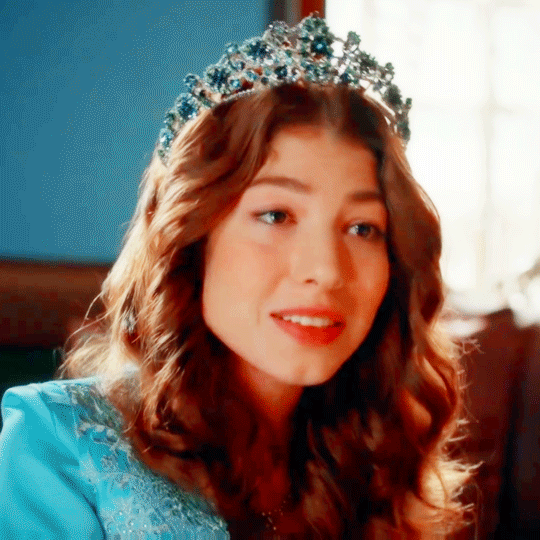
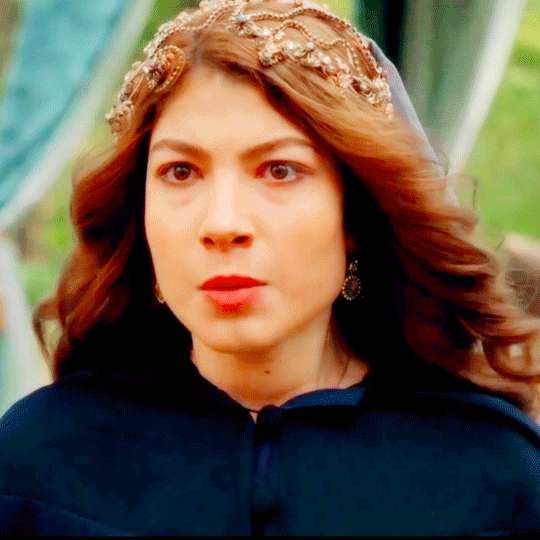
Alize Gördüm as Nergisşah Sultan in Muhteşem Yüzyıl for #MinorLadiesMonth (with special dedication for @palaceoftears ♥️)
#Muhteşem Yüzyıl#magnificent century#mcedit#perioddramaedit#weloveperioddrama#minorladiesmonth#Nergisşah Sultan#perioddramasource#nergissah sultan#hope it cheers you up a bit Sol among this Argentine fiasco :(
41 notes
·
View notes
Text
Knowing that Nergisşah has lost pretty much all of her mother figures (Rümeysa, Mihrünnisa and possibly her real mother Ayşe Hatun too) at some point in her life, makes Süleiman marrying her off, thus separating her from her last mother figure left (Mahidevran) all the crueler.
#not to mention her father's death too#that not only brought yet another unfortunate cascade of events#but left Nergis in a position where she's lost not just her mother figures but *everyone* one after the other#it explains her so desperately refusing to be seperated from her loved ones and the place(s) she views as home every time it could happen#but her last mother figure being the one who supported her in starting a new life#and gave her at least a little hope in establishing something solid in that scary unknown future instead of stagnating and withering away#is so SOO poetic i love it#i love this family sm#magnificent century#muhteşem yüzyıl#muhtesem yuzyil#nergissah sultan#mahidevran sultan
33 notes
·
View notes
Text
Does anyone remember in which episodes teenage/adult Nergisşah Sultan (daughter of Mustafa) appears in Magnificent Century?
I know she wore one of Hatice's and Huricihan's dresses and I want to check if they reused more on Nergisşah, which seems likely since she was a minor character compared to others.
EDIT: In case anyone cares, I have already found matches.
The pink with silver embroidery was, as previously mentioned, Hatice’s and then Huricihan’s before that.
The red coat with black fur was also previously worn by both of them.
The pink & purple dress she wears when she receives the news of her father’s death was previously Hatice’s. I don’t remember that one on Huricihan.
Unrealted to Nergisşah but did you know that one of the hats/headpieces was shared between Hatice, Mihrünnisa and then Nurbanu? Yeah, me neither. There is only a few episodes between Mihrünnisa and Nurbanu even. I think Nurbanu wears it the episode after Mihrünnisa kills herself.
I’m sure that I have also seen the other costumes before but I can’t pin point yet on whom.
The pink cloak with fur has some contenders for which it could be. Hatice definitely has one with the same color in the first season, but it is missing the fur. This could have been added later. I think Huricihan and Mihrimah wore something similar as well. I also think at least one of them also went on to be used in the spin-off. I will have to dig a bit deeper here.
The blue and black cloak also looks familiar but I have no idea who could have worn it before, except for the obvious Hatice or Huricihan.
The dark blue dress also looks familiar. It is kinda Sah’s style but I the matching one I found looked a bit different. In fact, Sah’s looked very similar to one of Mihrünnisa’s which I will have to check out again.
The blue headpiece she wears when traveling and at the funeral also looks familiar. It could be something Hatice has worn after Ibrahim’s death.
7 notes
·
View notes
Text
I repeat one of my comments posted on Youtube
If I had my say on the way Suleiman's children were portrayed, because like a lot of people, I didn't like the way it was written in Magnificent Century, that's what I would do. ( In my eyes, Mustafa was seen as a pure white sehzade, which therefore made him in my eyes more stupid and less interesting than he actually was. Mehmed was practically erased of his personality and seen as a pure Gary Stu like his half brother. Cihangir, who I adore, yet in the series was too naive. Selim is seen as evil, etc...)
I would respect the historical point of view more. I propose an alternative version, I would have added Suleiman's children he had when he was sehzade with his other concubines before he became Sultan and met Hurrem and then had them die of the plague as it was historically.
Sehzade Mustafa - I would keep his childlike personality, except he is not close to his siblings (because of the fratricidal law), and I wouldn't put him close to Ibrahim at least until he becomes an adult and allies himself with him. I would let his mother take care exclusively of his education. A young man who craves recognition and attention from his father, who often neglects him in return over his other children due to the fact that Mahidevran is the Sultan's least beloved concubine. The more he becomes an adult, and especially a father, the more he resents his father because of the way he treats his mother and him. He does not really understand his father and therefore his fears due to the fact that he did not grow up close to him. I would keep his efficient heir personality because he performs very well despite his father never teaching him well because of his mother who is a very good advisor. Instead of doing something for his military glory or showing off his harem too much, I would focus on how he improves the lives of common people exhausted by too much conquest. I would make his guilt very ambiguous, at the start it is clear that he wants to wait for his father to die to have the throne and restore his mother's honor, however, he realizes that his father lets his vizier lead his life impossible to see even encourages him, does not hide that he preferred to have a son of Hurrem on the throne no matter what Mustafa will do. Following this, the sehzade wants to have a second plan like his grandfather in case Suleiman wants to abdicate in favor of another of his sons which would put him in danger (which could explain the Venetian correspondence, others say that it was a plan to prevent his brothers from escaping if one day he became Sultan) but hesitates to actually carry it out, then after some hesitation goes to his father's tent and gets strangled. Instead of doing Atmaca, I would focus on Mustafa's son-in-law, Nergissah's husband who started as Rustem's ally and becomes his most loyal supporter ( it seems that it is more a legend than truth, but I didn't remeber well as I didn't have on me my books of historian like Halil Inalcık) . So I would avoid making a treacherous Sehzade, his mistakes would be understandable, but he wouldn't be a pure white Sehzade.
Sehzade Mehmed: it's more complicated for him because he died without having proven himself in a complicated province like Amasya, so it's quite difficult to make a comparison with Mustafa. But I would make sure to give him a real personality: initially close to some of his brothers like Selim and Bayezid, he becomes, despite his mother, more distant towards them because of the fratricide (Mehmed II had therefore legalized it there is not much way to escape from it at the time unlike MCK) although he is very close to Cihangir and his sister. Unlike Mustafa, his father trained him in the regency of the palace and he did very well by dint of advice and practice. When he is sent to the provinces, he often listens to his mother's advice when she visits him. Knowing that he has the support of the statesmen against Mustafa he realizes knowing his father better than his half brother that he will have to play the role of the obedient sehzade not interested in politics although deep down he prepare for it. He has the happiness of being a father but dies immediately afterwards.
Mihrimah Sultan- I would make sure to respect the historical Hurrem who wants her daughter to have a marriage of love and happiness. However Suleiman prefers Rustem, and she accepts him immediately because she will do everything to save her brothers and convince her mother to accept this marriage. I would rather show her as a politician as well as her diplomatic relations. However, I would underline the unjust side of Suleiman, he had Mustafa executed and condemned Mahidevran to poverty but refuses to punish Mihrimah by banishing her because she would have helped Bayezid financially during his rebellion. Their relationship would be cold for a time before reconciling. She will be reconciled with her brother Selim because basically they only remain and will be an ally of Nurbanu.
Sehzade Abdullah- I would have included him even if he died very young.
Sehzade Selim- Initially a cultured young man very focused on charity work like his mother and sister and very sober. Nevertheless it is often sad due to the law of fratricide. When Mustafa dies, he realizes he has a chance to escape it and he will fight in a wicked way especially for his son Murad because he knows that Bayezid's temper will put him in danger besides fratricide. He knew how to recruit powerful and efficient state members. He is on the whole an obedient sehzade but who is disgusted with his father's treatment of Mahidevran (after all she is no longer a threat to him she no longer has a son) and who will take risks to her by helping her financially. As the hardships go on, his depression increases he drinks more and more especially after his sister takes the part of Bayezid, that his brother Bayezid dies, and the fact that he is obliged to make other sons in the case where Murad dies without an heir which means that he knows that his other sons will be condemned to death. He has become a broken leader although he makes sure there is effective governance.
As a Sultan he must face his father's mistakes, including the way he led the Empire, including too many wars and unnecessary conquests in Europe.
Sehzade Bayezid- Him complicated. Due to his explosive temper he is the black sheep of his siblings (Mustafa does not count since he is a half brother, they do not even know each other) and the most incompetent of Suleiman's sons and Suleiman is worried because he has inherited the worst faults of Selim Yavuz like being angry easily (without having had his qualities). Yet deep down he wants affection and that's why he has several children even if it's irresponsible, his mother favors him because she's afraid for him because he has too impulsive nature . Mihrimah comes to his aid only in memory of his mother, because deep down she prefers Selim, Bayezid knows this, which means that he hardly listens to her. She only helps him financially as a last resort because she couldn't convince him to call off the rebellion. Suleiman was more lenient to his mistakes that Mustafa (we could once again underline the unfair side of Suleiman again with this) until the point that he took refuge to the Shah.
Sehzade Cihangir- A cultured young man very close to his parents and very sick. I would make him a supporter of Selim because although he is close to him, he also knows that he is his only chance of survival because he is not close to Bayezid at all. He often sends information from the Palace to Selim to better aid him in managing his province and at times advises him to be more ruthless in his quest for the throne while remaining an obedient sehzade. It would therefore be a good adviser for Selim (and it would give him more personality). He cannot therefore be limited to the role of a simple supporter but also of a valuable advisor.
And that's how I would portray them if I were in the place of the screenwriters. They are all very nuanced (we avoid all white or all black), we can freely pick a favorite without trying to favor another sehzade at all costs, and I try to be consistent with what we know about them and try to explain why they did mistakes or make sucess.
#magnificent century#mihrimah sultan#sehzade bayezid#sehzade selim#Mustafa sehzade#hürrem sultan#suleiman the magnificent#sehzade Mehmed#mahidevran hatun#Şehzade Cihangir#historical interpretation#historical inaccuracies
23 notes
·
View notes
Photo










Magnificent Century Season 3 + Sassy Sultanas, Part 2 (Parts 1,3)
#Muhteşem Yüzyıl#Muhtesem Yuzyil#Magnificent Century#mcedit#perioddramaedit#weloveperioddrama#MC Sassy Sultanas S3#period drama#perioddrama#MCPlus#HistoricalDramasPlus#wspaniałe stulecie#Hurrem Sultan#Mahidevran Sultan#Mihrimah Sultan#Hatice Sultan#The Truth About the Daughter of Ibrahim Pasha#Deceitful Truths#Death in the Hammam#Game of Memory#Miraculous Healing#Gold is Found#Fateful Act#Awkward-Sultana#Nergissah Sultan
70 notes
·
View notes
Text
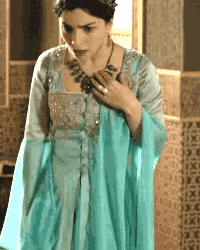


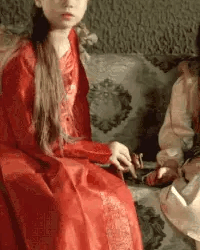
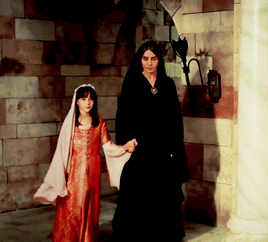
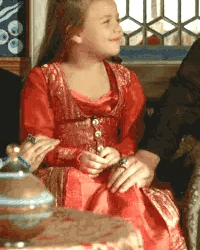
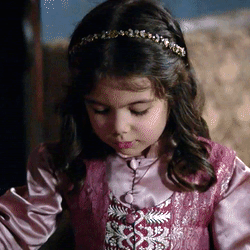

Gowns worn by more than one character:
Part: 18
Gifs by @awkward-sultana and @kosem-sultana
#hurrem sultan#magnificent century#hurrem#mihrimahsultan03#muhtesem yuzyil#sultan suleyman#historical drama#historical#perioddrama#perioddramaedit#period drama#historicaldramacostume#ottoman history#history#mihrimah sultan#Kaya sultan#hanzade sultan#Nergissah sultan#Anna#gevherhan sultan#sahihuban sultan#Ismihan sultan#nurbanu sultan#ayse sultan
100 notes
·
View notes
Photo




It’s time for my grandson to have a circumcision ceremony.
Family breakfast for the Amasya family and friends series
#perioddramaedit#mcedit#magnificent century#muhteşem yüzyıl#mahidevran sultan#sehzade mustafa#mihrunnisa sultan#sehzade mehmed son of mustafa#nergissah sultan#*mine#idk something random to get me back into giffing#*amasyafamily
99 notes
·
View notes
Photo






9 notes
·
View notes
Photo

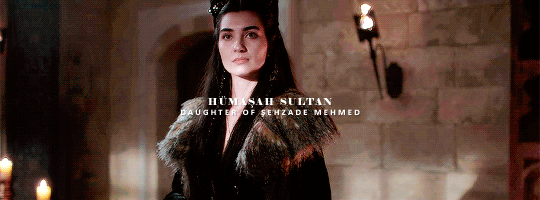
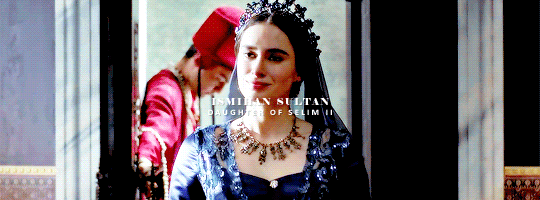



𝐭𝐡𝐞 𝐠𝐫𝐚𝐧𝐝𝐝𝐚𝐮𝐠𝐡𝐭𝐞𝐫𝐬 𝐨𝐟 𝐒𝐮𝐥𝐞𝐲𝐦𝐚𝐧 𝐭𝐡𝐞 𝐌𝐚𝐠𝐧𝐢𝐟𝐢𝐜𝐞𝐧𝐭
#history#historyedit#ottoman history#suleyman i#nergissah sultan daughter of sehzade mustafa#ayse humasah sultan#humasah sultan daughter of sehzade mehmed#ismihan sultan daughter of selim ii#gevherhan sultan daughter of selim ii#sah sultan daughter of selim ii#mihrimah sultan daughter of sehzade bayezid#hatice sultan daughter of sehzade bayezid#sah sultan daughter of sehzade mustafa#ayse sultan daughter of sehzade bayezid#hanzade sultan daughter of sehzade bayezid#fatma sultan daughter of selim ii#ottomanladiesedit
259 notes
·
View notes
Text









This pink cloak was used nine times throught the run of both Magnificent Century series.
It was first worn by Hatice Sultan in the third episode of the first season. Brown fur trim was added to the cloak before it appeared again on Princess Isabella Fortuna in the eleventh episode of the second season. The updated version is then seen again on Hatice Sultan in the twenty-second episode. It was also worn by Aybige Hatun in the thirty-second episode of the same season.
In the third season, the cloak was worn by Mihrimah Sultan from the eighth episode onwards. During its use on her, the hood was removed from the cloak and some of its fur was used to trim the new neckline. The new version continued to be used in the fourth season on Hatice's daughter Huricihan Sultan in eighth episode as well as on Nergisşah Sultan in the twentieth episode.
The cloak was also used in the spin-off Magnificent Century: Kösem. This time on Kösem Sultan in the eigth episode of the first season, and on Kösem's daughter Atike Sultan in the fifth episode of the second season.
This is an updated repost of an older version of this post.
#Muhteşem Yüzyıl#Muhteşem Yüzyıl: Kösem#Magnificent Century#Magnificent Century Kösem#Magnificent Century Kosem#period drama#costume drama#historical drama#Hatice Sultan#Hatice Sultan (Daughter of Hafsa)#Isabella Fortuna#Mihrimah Sultan#Mihrimah Sultan (Daughter of Hürrem)#Huricihan Sultan#Nergisşah Sultan#Nergissah Sultan#Kösem Sultan#Kosem Sultan#Atike Sultan#reused costumes#recycled costumes
10 notes
·
View notes
Text
Portrait of Şehzade Mustafa/Musztafa herceg portréja
Prince Mustafa is a prime example of the struggle for the Ottoman throne. His life and death show well that a sultan could not only be the father of his children but he saw his sons as a constant source of danger for his authority. The case of Mustafa is also a good indication of to where excessive popularity is leading. His death to this day is one of the most controversial events in the history of the Ottoman Empire. Was he a traitor or just a victim of the circumstances?
It’s not easy to write about Mustafa. Maybe I managed to write this portrait the slowest and hardest, because even if I find him innocent or rebellious, what happened to him is tragic. And writing about Mustafa’s life, one cannot go without saying a word about Mahidevran’s suffering. While I was writing this post, my heart didn't really hurt for Mustafa, but for Mahidevran...
Origin and upbringing
Prince Mustafa was born as the second son of Suleiman in 1515 in Manisa, his father's princely province. His mother was one of Suleiman's concubines, Mahidevran Hatun. At the time of his birth, he had at least one older brother, Mahmud, and perhaps at the same time as his birth, his half-sister, Raziye, was born also. His childhood in Manisa was certainly happy. His paternal grandmother, Ayşe Hafsa, paid attention to the smallest detail to give her grandchildren the best education. He also had the opportunity to see his father on a daytime basis, so they had a quite calm and nice life in Manisa.
This calmness was interrupted in the fall of 1520, by Sultan Selim I's death. Suleiman immediately went to the capital with his entourage to ascend the throne. With the departure of Suleiman, Ayşe Hafsa Sultan prepared the entire court and harem for their journey to Istanbul. The kids must have been curiously excited about the upheaval around them, the packaging, the bustling harem. Ayşe Hafsa had already left Manisa before the harem to be with her son as soon as possible. Prince Mustafa, with his brothers, sister and other members of the harem, probably reached Istanbul in early 1521 and moved into the Old Palace. Ayşe Hafsa has so far prepared the children’s apartements so they can arrive into a relatively peaceful place.
Mustafa shared his apartement with his mother. His father also tried to visit his harem as often as possible, but they could no longer see each other on a daily basis. This must have been a difficult and strange situation for little Mustafa and his siblings. They arrived into a whole new world, with hundreds of women and servants living in the Old Palace's harem, while the Manisa harem - the only home they knew until then - consisted of barely a few dozen people. The many new faces, the hustle and bustle, could have been exciting and scary for the kids at the same time.
Around their arrival one of Suleiman's new concubines, Hürrem, was already pregnant, but this probably did not particularly interest Mustafa, as Suleiman always had other women, never living in a romantic relationship with Mustafa's mother. However, the period after the birth of Hürrem's son certainly affected Mustafa and his mother deeply. In October 1521, the plague broke into the palace and Mustafa's brothers and sister died as the victims of plague, except the newborn Mehmed. Mustafa lost his brothers overnight, he had to experience death up close. He could not yet comprehend that, with the death of his brothers, his chances of ascending to the throne had greatly increased. As a newborn, Mehmed was not really a full-fledged heir yet, as infant mortality was high, so Mustafa and his mother could feel privileged for a while. Soon, however, that changed.
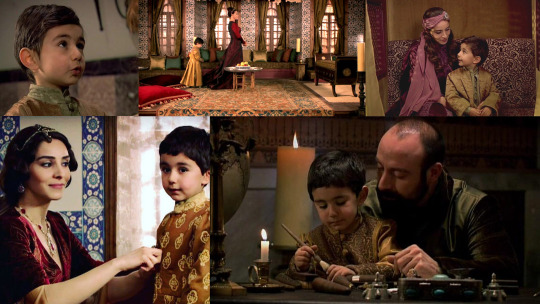
Trapped in the background
Suleiman soon asked Hürrem back into his bed, breaking the centuries-old tradition. It became clear that he was placing Hürrem in front of every other women, and at the same time, Hürrem’s children could expect more support from their father than Mustafa. Perhaps that is why Mahidevran took special care to her son. According to the traditions of the period, the heirs were primarily raised by the governesses, who often had a closer relationshipt with them than their mothers. However, Mahidevran never let it happen, Mustafa became “all her joy and happiness”. It was for this reason that the prince had a very close relationship with his mother, receiving from her the love and care which his brothers received together from their mother and father together. Suleiman, of course, tried not to neglect Mustafa either, but it could still be felt that his family with Hürrem enjoyed an advantage.
Mustafa was very clever as a child, and as the eldest boy he was already the favorite of the Janissaries. Although the right to the throne was not the right of the eldest prince, all the brothers had the same right to the throne, yet in the case of Mustafa, the Janissaries preferred him the most. The ambassador, Bragadin also mentioned that when Mustafa was only eleven, the people described the his talents, strong sense of self, and popularity among the Janissaries. Bragadin had commented, “they say that if he lives, he will bring great fame to the Ottoman House, and this also is said, that if it happens that the sultan lives long, it is inevitable that Mustafa will create much disorder”. The fact that both the people and the ambassadors noticed this as early as the second half of the 1520s clearly indicates that a sultan could never have been only the father of his children, but also a rival. In addition, this conjecture raises the possibility that the relationship between Suleiman and Mustafa may not have been perfect even back then.
As a child, Mustafa, who wanted more attention from his father, acted especially envious with those close to his father. Thus, for example, several cases are known when the prince acted against Ibrahim Pasha. The sultan sent İbrahim the gift of a beautiful saddle for his horse with jewels and all; and Mustafa, aware of this, sent word to İbrahim to have one like it made for him; İbrahim understood this and sent him the saddle, and said to him, ‘now listen, if the sultan learns of this, he will make you send it back.’
Mustafa was circumcised relatively late, in 1530. A similar circumcision ceremony has never been held in the capital. At the ceremony, his brothers Mehmed and Selim were circumcised with him also. The lavish ceremony lasted for more than two weeks, during which time the princes also took part in their father’s political deliberations, gaining admission into adult life. After his circumcision, it began to become timely when he would receive his own princely province. Like all princes, Mustafa was certainly looking forward to his appointment, to proving his ability and perseverance to his father and the people. However, he did not expect how much his departure from Istanbul would determine his later relationship with his father and his chances for the throne.

The young prince
Mustafa was sent out to his princely post to Manisa in 1533. Before leaving, Mustafa was received by his father in a formal audience within the palace that was attended by the vezirs and other leading officers of the inner and outer service. After kissing his father’s hand, Mustafa was escorted from the palace and publicly girded with a sword by the vezirs, one of whom held the stirrup of his horse and another his ceremonial robe. He was followed by his mother Mahidevran. Suleiman soon moved Hürrem and her children to Topkapi Palace. Thus, as soon as Mustafa left Istanbul, his brothers were able to move close to the Sultan, gaining an advantage that Mustafa was in no way able to reach: Mehmed, Mihrimah, Selim, Bayezid and Cihangir could live together with their father, tidy, normally and they had the opportunity to know exactly the ruler's personality. Mustafa never had the opportunity to get to know his father so deeply, which is why he later misjudged the outcome of his actions many times.
While his father lived a family life in Istanbul, Mustafa settled in Manisa. Everyone was happy with the well-prepared prince, he did a very good job in his province. According to the ambassadors, his mother never left the prince alone and helped him to rule. In addition, the ambassadors said it was thanks to Mahidevran that Mustafa had won the support of the people so successfully. They thought Mahidevran, who knew Manisa and the people well, had instructed her son well. Mustafa's court in Manisa, according to the Bassano's description was “a most wonderful and glorious court, no less than that of his father”. But in addition to the splendor, his stay in Manisa certainly hid sadness. For the prince learned here that his father had married his concubine, Hürrem, and even elevated her to the rank of sultan, creating a new title for her. This must have been affected the prince who was devoted to his mother. In addition, they clearly had to realize that Suleiman had chosen Hürrem and her children instead of them with this move. We do not know what Mahidevran felt about Hürrem’s blatant ascension or what Mustafa thought about it. Either way, they had to realize that they needed supporters right away if they didn’t want to lose the fight againts Hürrem.
Time - and perhaps the news of Suleiman's marriage - brought the support of the Grand Vizier for Mustafa. Although Mustafa did not have a perfect relationship with Ibrahim Pasha as a child, they had to get over it. Probably both of them realized they needed each other. Ibrahim had a particularly bad relationship with Suleiman's wife, Hürrem. Mustafa, on the other hand, could feel desperate because of Hürrem and her children's rise. So he needed strong supporters. So Mustafa and Ibrahim set aside the old grievances and began to build a respectful relationship. In 1534, Ibrahim referred to himself as a "sincere friend" of Prince Mustafa in his letter to the prince. It is difficult to say whether this alliance may have been politically active and Ibrahim sought to support Mustafa's future accession to the throne; or whether it was merely a respectful friendship between them. After all, it would have been logical for both parties to have a good relationship with the other, but to form a political alliance would have posed considerable dangers for both of them.
We don’t know much about Mustafa’s private life, but he seems to have followed the old traditions of family planning and did not produce countless descendants, such as his half-brother, Bayezid did. What is certain is that Mustafa's first child, Nergisşah, was born in Manisa in 1536 from a presumably circassian concubine. Even if another child was born in Manisa, they did not reached adulthood, for his other two known children, Şah, was born in 1545, and Mehmed in 1547, both in Amasya. His son, Ahmed is a questionmark, if he existed, was he really his son, when was he born? The only thing we may know about him, that he died by natural causes in 1552.

"Exile"
His move to Amasya in 1541 was by far one of the most crucial points of Mustafa's life. Suleiman appointed Mustafa to Amasya instead of Manisa, which at first may seem like exile, Mustafa may not have experienced this as a negative event. In general, Manisa was the starting position of every prince, as it was a simple province, had no special forces, was close to Istanbul, and did not pose much of a challenge. However, Amasya was a different place, close to the Iranian border, with a significantly larger military, requiring a distinctly high level of expertise and effort. In earlier times, the princes desired the province of Amasya precisely because of the difficulty of it. Overall, therefore, the appointment to Amasya was not necessarily as tragic and ominous as is thought today, mainly due to the series. Furthermore, Prince Mehmed was appointed more than a year after Mustafa's departure as head of Manisa, so we cannot speak unequivocally that Suleiman removed Mustafa from Manisa for Mehmed's sake.
Whatever he thought, Mustafa was forced to obey and travel to Amasya with his harem and court. They were barely settled when they learned that Suleiman had appointed Prince Mehmed to head Manisa, and soon the news of the prince's death came. What Mustafa may have felt about Mehmed's death remains an eternal secret. According to some sources, the two princes were close to each other, but most probably this is not true. The princes from different mothers were raised separately, and their education was separated also, so it is likely that there was no such close bond between Mehmed and Mustafa, which was the case between Mehmed and his full-brothers. Nevertheless, Mehmed was clearly Suleiman’s favorite son, popular, intelligent, and educated. His presence posed a huge threat to Mustafa. With his death, only his brothers, much younger than Mustafa, remained in competition for the throne. And because of their age, they posed no threat to Mustusta. Mustafa was 28 years old so far, a father, a prince who provedhis ability in two provinces, a favorite of the Janissaries, and with many other influential supporters. In contrast, Selim was not even 20 years old, he had just been appointed to his first province, Bayezid was only a teenage boy and Cihangir was a child.
In addition to the fact that none of his younger brothers posed a real threat to Mustafa, Suleiman himself believed that Mustafa would follow him on the throne. This is indicated by the dialogue between Suleiman and Prince Cihangir, recorded by an ambassador. When Cihangir ventured that his physical deformity would allow him to escape the princely fate of fratricide, Süleyman responded, “My son, Mustafa will become the sultan and will deprive you all of your lives.” This suggest that even the sultan expected Mustafa to succeed. This also suggests that, although Suleiman certainly loved his children born with Hürrem more than Mustafa, he no longer wished to have a say in the question of succession. He would no doubt have done it for Prince Mehmed, but with his loss the Sultan was shattered and showed no particular interest in inheritance.
The wait
Under such circumstances, it may seem that Mustafa had nothing to do but wait for Suleiman's death. And this did not seem so distant, as Suleiman's health began to decline gradually in the 1540s, and his gout became more and more prevalent. So the logical thing would have been that Mustafa would do nothing for a long time but wait and just rule in Amasya, produce children and thats all. Contemporary historians then wrote of Mustafa as “the envy of all the princes in his gloriousness, lofty titles, and learning, and in his liberality, justice and munificence; nearly all the soldiers were of one heart and mind in their love of him”.
In addition, the ambassadors regularly mentioned the role and actions of his mother. Navagero in a report described Mahidevran’s efforts to protect her son: “Mustafa has with him his mother, who exercises great diligence to guard him from poisoning and reminds him every day that he has nothing else but this to avoid, and it is said that he has boundless respect and reverence for her”. However, Mahidevran was not satisfied with the warnings, according to some sources, she herself cooked the prince's food, and if she did not prepare it, she followed every single step of the preparation and the cooking. This paranoia clearly suggests that Mahidevran — as mother and as woman — knew exactly that Hürrem — as mother and as woman — would never accept Mustafa’s victory, as it would mean the death of her own sons. Mustafa may have felt his mother's fear exaggerated, but no doubt Mahidevran was right, even if Hürrem did not want to get rid of Mustafa with poison.

The intrigues
Hürrem's son-in-law, Rüstem Pasha, the Grand Vizier, tried to make Prince Mustafa's life and work impossible by political methods. On the one hand, all the prince's faults were immediately revealed to the sultan, while in the case of Hürrem's sons they were concealed. In addition, Rüstem tried to make every movement of the prince impossible: Mustafa twice asked Rüstem Pasha for support when Georgians and then Persians invaded Amasya province and killed several governors and people, first in 1549 and then in 1550. Mustafa asked for an army, with what he could have crushed the invading neighbors, but Rüstem rejected Mustafa's request. It cannot be ruled out that he did so on the orders of Suleiman. Suleiman already knew then that his son was a favorite of the Janissaries, he was afraid that if he got an army, his popularity would continue to grow, and perhaps he could even start a rebellion as the head of the army. But why was Suleiman so paranoid about his son? Because, as a prince, he himself watched as his own father, Selim, do a rebellion and overthrew Sultan Bayezid II, then kill him. Suleiman experienced this rebellion up close, seeing how - thanks to the support of the Janissaries - his father was able to triumph, with almost no one but the Janissaries supporting him. This is why the fact that Mustafa was a favorite of the Janissaries was especially dangerous. The prince, if he had known his father well, should have known that he would have to be much more careful with the Janissaries.
The sons of Hürrem knew the sultan well, having lived together for years, but Mustafa was not in such a privileged position, so perhaps unsurprisingly, he did not realize the danger of seeking allies. That is why, instead of quietly waiting for his father's death, he tried to gather supporters around him. This, of course, was understandable, as he felt Hürrem was doing everything against him, so he wanted to get supporters at all costs. For example, an undated letter is known, which is part of his correspondence with Ayas Pasha. Ayas Pasha was a Grand Vizier between 1536 and 1539, so presumably the letter dates from this period. He disclosed his ambitions in a letter to Ayas Pasha expressing his desire for the throne—although he clearly stated that he would not overthrow his father and wished to be sultan only after Süleyman’s death. He requested the help of Ayas Pasha, who responded positively, assuring the prince that he was worthier of the throne than his brothers were, so of course all his support belonged to the prince. The letter presumably did not immediately was given to Suleiman, for although its content would have been unacceptable to Suleiman, but he still did not punish Mustafa during this period. It is more likely that the letter could have been given to the sultan later (if he had become aware of its existence at all). And perhaps Rüstem Pasha was the one who gave the letter to Suleiman. Rüstem became the second vizier in 1541, and Mustafa was sent to Amasya that year. Maybe Rüstem was theone who found the letter when he came across the letter in the archives? We'll probably never know the answer...
Rüstem Pasha, by the way, seems to have actually tried to undermine the prince's influence. This is revealed by another letter. According to this, someone wanted to complain to the Sultan that Rüstem was falsifying the seal of Prince Mustafa and fabricated a false letters as if Mustafa had conspired with the Persian shah. Eventually, however, the complaint fell into the hands of Rüstem, so the Sultan did not know what vile methods Rüstem was trying to use to eliminate his son, if the accusation was true at all. In the end, Rüstem did not dare to openly accuse Mustafa with the Persian alliance.

The last mistake
With such a background, Suleiman even in the 1540s, was particularly afraid of Mustafa, but apart from his mistakes, Suleiman did not believe that his son would rebel against him. However, in 1552, Mustafa made a mistake that could no longer be forgiven. Suleiman was not afraid of anything but the Janissaries. And in 1552, despite all the orders and prohibitions of their leader and Rüstem Pasha, the janissaries decided to visit Prince Mustafa, their future sultan, who lived not far from the place they were. This, of course, was not yet Mustafa's fault, but the prince welcomed the incoming Janissaries, distributing food and money among them. And this proved to be a fatal mistake. Rüstem Pasha immediately wrote a letter to Suleiman and told him what happened, but the sultan did not believe that Mustafa would receive the soldiers. Backing from the campaign, Rüstem, took witnesses to the Sultan and told him everything again, but Suleiman still did not believe him and rebuked Rüstem. According to the records, Suleiman said: "God forbid that my Mustafa Khan should dare such insolence and should commit such an unwise move during my lifetime! It is trouble-makers trying to obtain the rule for the prince they support who are responsible for such slander. Beware that you never again repeat such a thing and that you do not believe such maliciousness."
However, the suspicion certainly arose in the sultan as well, because he ordered an investigation of the case. The investigation also shed light on rumors that were spreading between the soldiers that they were dissatisfied with Suleiman sitting at home and they wanted a young, vivid sultan like Mustafa. And this, coupled with Mustafa's positive reception of the Janissaries, was enough for Suleiman to consider his own son as a potential source of danger. If Mustafa had rejected the Janissaries who came to him, he could have proved his unconditional allegiance to his father. However, the prince either did not know his father or really intended to rebel and therefore did not want to offend the Janissaries with a rejection.
Adding to the trouble, letters and news also came to light, proving that Mustafa had conspired with the Venetians. A letter was sent by Mustafa at the end of the summer of 1553 to the Venetian Senate and was received in Ocotber. Along with the letter, Mustafa also sent an ambassador who carried expensive gifts and, presenting them, asked for financial support from bailo on behalf of the prince so that Mustafa could obtain the throne for himself. The authenticity of the event itself is not in question; however, whether Mustafa was the one who sent the ambassador, or whether it was a trap, is questionable. Either way, it could not have been easy to obtain the seal of the prince and carry out such an intrigue without fail, so it is not at all clear that it was indeed an intrigue or that Mustafa was actually involved in it. There is a realistic chance that both the letter and the ambassador were sent by the prince. The Venetians were, by the way, ready to support Prince Mustafa, and they also wrote it in their reply, however, this letter could no longer reach the prince alive.

His encounter with destiny
In August 1553, Suleiman himself led his soldiers into a campaign near to the Iranian border. The seriousness of the situation is well illustrated by the fact that Rüstem Pasha and Sultan Suleiman left Istanbul by leaving it in the hands of two loyal and capable people. They left the more militant prince, Bayezid, in Edirne to protect the capital from there; and the most loyal pasha to Rüstem, his own brother, Sinan Pasa was appointed as the admiral of the fleet. This was necessary because if Mustafa had guessed the sultan’s plan and decided to march to Istanbul, the fleet would not have allowed him to enter the capital because a faithful pasha was the head of it. And if the prince would succeed to cross the sea, with his aggressive nature, Prince Bayezid might have been more likely to stop Mustafa until the Sultan's army could returned.
After the news of the Venetian alliance, Suleiman decided that his son was rebellious and therefore had to be punished. It is not clear when Suleiman received the news of the Venetian alliance, it is not known whether he already knew it or got the news during his journes to Ereğli, or maybe only recieved the news after Mustafa's death. Anyhow Suleiman invited Mustafa to his camp to explain the charges against him. His mother, his supporters, and everyone close to him warned him, not to enter the sultan's camp. His supporters encouraged him to message the Janissaries and rebel against his father because he had no other option to survive. Mustafa, however, did not believed them and set out. This move suggests that he may not have been guilty of correspondence with the Venetians, for if he had, he should have been aware that it would cause his death. Maybe he thought the sultan didn't know about the incident? Maybe he thought that he only had to give an account for the Janissaries’ greetings last year? The Austrian ambassador gives the most accurate description of the prince's dilemma: "Mustafa hesitated between two choices: if he entered the presence of his father and found him angry and offended, he would certainly be at risk. But if he avoided him, he would publicly admit that he had contemplated an act of treason. The decision he took is the one that required more courage and risk. Leaving Amasya, the seat of his government, he headed to his father’s camp, which lay not far off, relying on his innocence; he was probably also confident that no harm could come to him in the presence of the army."
Either way, Mustafa arrived at Ereğli on October 5 but his father did not let him into his camp but made him built his camp 2 miles away. Legend has it that the evening someone from the Sultan’s camp fired a message into the prince’s camp with an arrow. In the message, the sender clearly described that the sultan would kill Mustafa if he enters to the camp. Mustafa, however, did not believe the letter, he guessed it was Rüstem Pasha's trick, so he ignored it. Mahidevran also sent an envoy to the prince and said that Suleiman had taken deaf-mute people with him to his camp, whose presence clearly indicated that the sultan wanted to execute his son. However, according to reports from the ambassadors, Mustafa did not believe to his mother either and on October 6 he set out for the Sultan's camp to go "where destiny cast him." It is not known whether the arrow and the envoy of Mahidevran actually happened, or only poetic exaggerations, but it is certain that many warned the prince not to go to the sultan's camp, but he still did.
Arriving to the camp, the prince entrusted his horse to his mirahûr (stable master) and his sword with the sultan’s guards. When he entered the fourth section of the imperial tent, he saw his father seated there with an arrow in his hand. He reverently saluted his father but received a shocking response: “Ah! Dog, do you still dare to salute me?”. The deaf-mutes then attacked the prince from several sides and seized him, then tried to wrap the silk cord around his neck. Mustafa, however, miraculously emerged from their grip and began to rush outward. He had almost reached the gate of the tent, from which, if he had escaped, the Janissaries would immediately kill the Sultan's guards and the Sultan himself, and history would be different. But at the door, he was eventually crushed, and legend has it that one of the sultan’s men, Zal Mahmud, was the one who finally successfully strangled the prince. As soon as the prince died, a signal was given and his mirahûr and one of his accompanying aghas were killed immediately in front of the tent. After this in the camp, hell broke loose, the Janissaries revolted against the Sultan, and long riots began. Suleiman soon ordered the strangling of Mustafa's only son, Mehmed. This was not under the pressure of Hürrem, as the malevolent rumors and the series showed, but it was the law. The sons of the rebellious princes were also branded as rebels, and their daughters did not deserve a marriage worthy of their rank.
News of Mustafa's death quickly reached Mahidevran and the prince's court. Mahidevran certainly knew that a similar fate awaited for her grandson, but she could do nothing. The prince's harem, along with his mother, followed his body to Bursa, where he was eventually buried. His mother spent all her wealth on building a tomb over Mustafa's grave, but Suleiman made it impossible, so in the end it was Mustafa's half-brother, Selim, who had sent money to Mahidevran to complete the tombe even during Suleiman's life. Mustafa’s mother and harem were the last harem concubines to retire to Bursa and not to the Old Palace.

Was Mustafa guilty?
This is one of the greatest questions in Ottoman history. His guilt has not yet been proven, nor has his innocence. In my opinion, Mustafa did not want to rebel then and there, but at the same time he was at fault for accepting the love and support of the Janissaries and never expressing his unconditional loyalty to his father towards the Janissaries. Besides, like any other prince, he longed for the throne, which in itself is not a mistake, but its expression is already is. Especially as we know, in Suleiman's eyes, this was the greatest betrayal possible. If, on the other hand, he had wanted to rebel against his father, I think he would not have gone to Ereğli and never entered the sultan's tent. He would not have risked his murder, but would rather have rebelled, as the Janissaries were present in Ereğli and would no doubt have sided with the prince.
The fact that contemporary poets, writers, pashas, soldiers — so basically every essentially important person — but even the common people supported him and believed he was executed innocently by the Sultan does not mean it is the truth. These people hated Hürrem immeasurably, because Suleiman broke so many customs and traditions for her sake, so they blamed the woman for everything. And whom Hürrem did not like, they worshiped. Thus, the general belief that Mustafa was innocent does not really help in deciding the reality, as these individuals were very biased. Modern historians are very much divided on this subject, some say the prince was indeed guilty, others say not at all, and others say the truth is halfway. Zahit Atçıl wrote a great article on the subject, summarizing all the evidence that just exists, so for anyone who wants to know more about the circumstances of Mustafa’s execution, I would definitely recommend reading it.
Either way, Mustafa posed a real threat to his father for supporting by Janissaries. The Janissaries were able to arbitrarily dethrone sultans from the throne and lift princes up to it. If the Janissaries had decided definitively that they had had enough of the aging, sick Suleiman, they would have dethrone Suleiman and lift Mustafa even without the will of the prince. Thus, the death of Mustafa was mostly caused by the excessive love of the Janissaries.
Used sources: L. Peirce - The imperial harem; L. Peirce - Empress of the East; Z. Atçil - Why Did Süleyman the Magnificent Execute His Son Şehzade Mustafa in 1553; C. Imber - The Ottoman Empire 1300-1650; Y. Öztuna - Kanuni Sultan Süleyman
* * *
Musztafa herceg a trónért folyó küzdelem mintapéldája. Élete és halála jól mutatja, hogy egy szultán nem tudott csak édesapja lenni gyermekeinek hanem állandó veszélyforrásként tekintett fiaira. Musztafa esete emellett jól mutatja, hogy hová vezet a túlzott népszerűség. Halála a mai napig az egyik legellentmondásosabb esemény az oszmán birodalom történetében. Áruló volt vagy csupán a körülmények áldozata?
Musztafáról nem könnyű írni, talán ezt a portrét sikerült a leglassabban és legnehezebben megírnom, mert akár ártatlannak tartom, akár lázadónak, az ami vele történt tragikus. És Musztafa életéről írva nem lehet elmenni szó nélkül Mahidevran szenvedése mellett sem. Amíg írtam ezt a posztot nem is igazán Musztafáért fájt a szívem, hanem Mahidevránért...
Eredete és neveltetése
Musztafa herceg Szulejmán második fiaként született 1515-ben Manisában, apja hercegi tartományában. Édesanyja Szulejmán egyik ágyasa, Mahidevran Hatun volt. Születésekor legalább egy idősebb testvére volt, Mahmud és talán vele egy időben jött világra féltestvére, Raziye. Gyermekkora Manisában minden bizonnyal boldog volt. Apai naganyja, Ayşe Hafsa a legapróbb részletekig odafigyelt arra, hogy unokái a legjobb neveltetésben részesülhessenek. Emellett pedig napiszinten volt lehetősége látni édesapját is.
Ez a nyugalom 1520 őszén szakadt meg, mikor meghalt I. Szelim szultán. Szulejmán azonnal a fővárosba vágtázott szűk kíséretével, hogy elfoglalhassa a trónt. Szulejmán távozásával Ayşe Hafsa szultána felkészítette az egész udvartartást is az Isztambulba utazásra. A gyerekek minden bizonnyal kíváncsi izgalommal tekintettek a körülöttük zajló felfordulásra, a csomagolásra, a nyüzsgő háremre. Ayşe Hafsa már a hárem előtt elhagyta Manisát, hogy mielőbb fiával lehessen. Musztafa herceg, testvéreivel és a hárem többi tagjával valószínűleg 1521 legelején érte el Isztambult és költözött be a Régi Palotába. Ayşe Hafsa eddigre előkészítette a gyermekek lakosztályait, így már viszonylagos nyugalomba érkezhettek meg.
Musztafa lakrészét édesanyjával osztotta meg. Édesapja is igyekezett minél gyakrabban meglátogatni háremét, azonban többé nem láthatták napi szinten egymást. Ez minden bizonnyal nehéz és furcsa helyzet lehetett a kis Musztafának és testvéreinek. Egy teljesen új világba érkeztek meg, a Régi Palota háremében több száz nő élt, míg a maniszai hárem - az egyetlen otthon amit addig ismertek - alig néhány tucat emberből állt. A sok új arc, a nyüzsgés egyszerre hathatott izgalmasan és ijesztően a gyerekekre.
Érkezésükkör Szulejmán egyik új ágyasa, Hürrem már várandós volt, ám ez valószínűleg nem különösebben érdekelte Musztafát, hiszen Szulejmánnak mindig voltak más asszonyai, sosem élt Musztafa édesanyjával romantikus kapcsolatban. A Hürrem fiának születése utáni időszak azonban minden bizonnyal mélyen érintette Musztafát és édesanyját is. 1521 októberében a pestis betört a palota falai közé és áldozatául estek Musztafa testvérei, kivéve az újszülött Mehmedet. Musztafa egyik napról a másikra veszítette el testvéreit, kellett megtapasztalnia testközelből a halált. Ő ekkor még nem foghatta fel, hogy bátyja halálával esélyei a majdani trónra jutásra jócskán megnövekedtek. Mehmed újszülöttként nem igazán számított még teljesjogú örökösnek, hiszen a csecsemőhalandóság nagy volt, így Musztafa és édesanyja egy ideig kiemelt státuszban érezhették magukat. Hamarosan azonban ez megváltozott.

Háttérbe szorulása
Szulejmán hamarosan újra ágyába kérette Hürremet, amivel megtörte az évszázados hagyományt. Egyértelművé vált, hogy Hürremet minden más asszony elé helyezi, ezzel együtt pedig Hürrem gyermekei is nagyobb támogatásra számíthattal édesapjuktól, mint Musztafa. Mahidevran talán épp ezért különös gondot fordított fia nevelésére. A kor szelleme szerint elsősorban a dajkák nevelték a szultáni sarjakat, gyakran közelebb állva hozzájuk mint édesanyjuk. Mahidevran azonban sosem engedte ki fia nevelését kezéből, Musztafa lett “minden öröme és boldogsága”. A herceg épp emiatt igen szoros kapcsolatban volt anyjával, tőle kapva meg azt a szeretetet és törődést, melyet testvérei anyjuktól és apjuktól együttesen kaptak. Szulejmán természetesen igyekezett nem elhanyagolni Musztafát sem, ám mégis érezhető lehetett, hogy Hürremmel közös családja előnyt élvez.
Musztafa igen okos volt már gyermekként is, emellett legidősebb fiúként a janicsárok kedvence volt már ekkor. Bár nem a legidősebb herceg joga volt a trón, az összes testvér ugyanakkora joggal rendelkezett a trónért, mégis Musztafa esetében, a janicsárok őt kedvelték legjobban. A követ, Bragadin egyik levelében hosszasan ecseteli, hogy Musztafa “11 éves korában már mindenki a tehetségéről, erejéről, alkalmasságáról beszélt, kiemelve, hogy még a janicsárok is nagyon kedvelik a herceget”. Bragadin emellett már ekkor megjegyezte, hogy “Isztambul népe szerint ha életben marad hatalmas dicsőséget fog hozni az oszmán házra, ám ha a szultán hosszú életű lesz, az gondot fog okozni Musztafa és ő közötte”. Az, hogy már az 1520-as évek második felében felfigyelt erre mind a nép, mint a követek egyértelműen utalnak arra, hogy egy szultán sosem lehetett csak apja gyermekeinek, hanem vetélytársa is. Emellett ez a sejtés felveti annak az eshetőségét is, hogy Szulejmán és Musztafa viszonya talán már ekkor sem volt felhőtlen.
Gyermekként Musztafa több figyelemre vágyott apjától ezért különösen irigyen tekintett az apjához közelálló személyekre. Így például több eset is ismert, amikor Ibrahim Pasával szemben lépett fel a herceg. Amikor a szultán egy díszes nyerget és kantárt küldött a pasának ajándékba, Musztafa azonnal levelet írt Ibrahimnak, melyben megparancsolta, hogy készíttessen számára is egy ugyanolyat. Ibrahim azonban meglehetősen intelligensen kezelte a helyzetet és az eredeti nyerget juttatta el a hercegnek ajándék gyanánt.
Musztafa körülmetélésére viszonylag későn, 1530-ben került sor. Ehhez fogható körülmetélési szertartás sosem volt még a fővárosban. A ceremónián vele együtt metélték körül öccseit Mehmedet és Szelimet. A pazar ünnepély több, mint két hétig tartott és a hercegek ezen idő alatt részt vettek apjuk politikai tanácskozásain is, ezzel pedig bebocsátást nyertek a felnőttek életébe. Körülmetélése után kezdett időszerűvé válni, hogy mikor kap saját hercegi tartományt. Mint minden herceg Musztafa is minden bizonnyal alig várta a kinevezést, alig várta, hogy bizonyíthassa alkalmasságát és rátermedtségét apja és a nép felé. Arra azonban nem számított, hogy Isztambulból való távozása mennyire meg fogja határozni kapcsolatát apjával és esélyeit a trónra.

A fiatal herceg
Szulejmán végül 1533-ban nevezte ki Musztafát Manisa tartomány élére. Távozása előtt Musztafa részt vett egy hivatalos szultáni audiencián, ahonnan a vezírek kísérték el őt a következő megállóhoz. Ott Musztafa megcsókolta apja kezét, a vezírek kardot kötöttek az oldalára majd lovára ülve elhagyta Isztambult. Őt pedig követte édesanyja Mahidevran is. Szulejmán hamarosan átköltöztette Hürremet és gyermekeit a Topkapi Palotába. Így tehát amint Musztafa elhagyta Isztambult, testvérei a szultán közelébe költözhettek, ezzel pedig olyan előnyre tettek szert a későbbiekben, amit Musztafa sehogyan sem volt képes behozni: Mehmed, Mihrimah, Szelim, Bayezid és Cihangir édesapjukkal együtt élhettek, rendezett, normális családi környezetben, ezzel pedig lehetőségük adódott pontosan kiismerni az uralkodót. Musztafának sosem volt lehetősége kiismerni apját, épp ezért mérte fel a későbbiekben sokszor rosszul egy egy cselekedete kimenetelét.
Amíg apja Isztambulban élt családi életet, Musztafa berendezkedett Maniszában. A jól felkészült herceggel mindenki elégedett volt, nagyon jó munkát végzett tartományában. A követek leírása szerint édesanyja sosem hagyta magára a herceget és segítette őt uralkodásában. Emellett a követek szerint Mahidevránnak volt köszönhető az, hogy Musztafa olyan sikeresen nyerte meg magának az emberek támogatását, szerintük ugyanis Mahidevran, aki jól ismerte Manisát és az embereket, remekül instruálta fiát. Musztafa maniszai udvartartása a követek szerint pompában nem maradt el a szultánétól sem. A pompa mellett azonban maniszai tartózkodása egészen biztosan rejtegetett szomorúságot is. A herceg ugyanis itt értesült arról, hogy édesapja feleségül vette ágyasát, Hürremet, sőt új rangot kreálva számára, szultána rangra emelte. Ez, az édesanyjáért elkötelezett herceget minden bizonnyal rosszul érintette. Emellett pedig egyértelműen rá kellett jöjjenek arra is, hogy Szulejmán ezzel a lépésével Hürremet és gyermekeit választotta őhelyettük. Nem tudjuk, hogy Mahidevran hogyan élte meg Hürrem kirívó felemelkedését és azt sem, hogy Musztafa mit gondolt róla. Akárhogyan is, fel kellett ismerniük, hogy azonnal támogatókra van szükségük ha nem akarják elveszíteni a harcot Hürremmel szemben.
Az idő - és talán Szulejmán házasságának híre - meghozta Musztafa számára a nagyvezír támogatását is. Ibrahim Pasával bár nem volt felhőtlen a viszonyuk, felnőve, ezen sikerrel léptek túl. Valószínűleg mind a ketten felismerték, hogy szükségük van egymásra. Ibrahim ugyanis kifejezetten rossz viszonyt ápolt Szulejmán eddigre feleséggé előlépő ágyasával, Hürremmel. Musztafa pedig kegyvesztetten érezhette magát, akinek szüksége volt erős támogatókra. Így tehát félre tették a régi sérelmeket és tiszteletteljes kapcsolatot kezdtek el kiépíteni. 1534-ben már Musztafa herceg "barátjaként" hivatkozik magára Ibrahim egy a hercegnek írt levelében. Azt nehéz megmondani, hogy politikailag is aktív lehetett e ez a szövetség és Ibrahim igyekezett támogatni Musztafa majdani trónralépését vagy csupán tiszteletteljes baráti viszony volt köztük. Hiszen mindkét fél számára logikus lett volna jó kapcsolatot ápolni a másikkal, ám politikailag szövetkezni meglehetősen nagy veszélyeket rejtett volna magában mindkettejük számára.
Musztafa magánéletéről nem tudunk sokat, ám úgy tűnik, hogy a régi szokásokat követte a családtervezés tekintetében és nem nemzett számtalan utódot, mint például féltestvére, Bayezid. Annyi bizonyos, hogy Musztafa első gyermeke Nergisşah, Manisában született 1536-ban egy feltehetőleg cserkesz ágyastól. Ha született is Maniszában másik gyermeke, azok nem érték meg a felnőttkort, ugyanis másik két ismert gyermeke Şah 1545-ben, Mehmed pedig 1547-ben születtek már Amasyában. Fia, Ahmed pedig egy nagy kérdőjel. Nem tudjuk, hogy egyáltalán létezett e, Muszafa fia volt e. Az egyetlen amit talán tudunk vele kapcsolatban az az, hogy 1552-ben hunyt el, természetes okokból.

"Száműzetése"
Az 1541-ben bekövetkező Amasyába költözés Musztafa életének mindenképpen egyik legsarkalatosabb pontja volt. Szulejmán Manisza helyett Amasyába nevezte ki Musztafát, ami elsőre bár száműzetésnek tűnhet, nem biztos, hogy Musztafa negatív eseményként élte ezt meg. Általában Manisza volt minden herceg kezdő posztja, hiszen egyszerű tartomány volt, nem volt különösebb hadereje, közel volt Isztambulhoz, nagy kihívást nem jelentett. Amasya azonban más terep volt, közel az Iráni határhoz, lényegesen nagyobb katonasággal rendelkezett, kifejezetten nagy szakértelmet és rátermedtséget igényelt irányítása. A korábbi időkben a hercegek Amasya tartományt tartották a vágyott tartománynak épp nehézsége miatt. Összességében tehát az Amasyába való kinevezés nem feltétlen volt olyan tragikus és vészjósló, mint ahogy azt napjainkban - főleg a sorozatnak köszönhetően - gondolják. Továbbá Mehmed herceget csak több, mint egy évvel Musztafa távozása után nevezte ki Manisza élére Szulejmán, így nem beszélhetünk egyértelműen arról, hogy Szulejmán Mehmed kedvéért távolította el Musztafát Maniszából.
Akármit gondolt is, Musztafa kénytelen volt engedelmeskedni és háremével, udvartartásával együtt Amasyába utazni. Alig rendezkedtek még be, mikor megtudták, Szulejmán Mehmed herceget nevezte ki Manisza élére, majd hamarosan már a herceg haláláról érkeztek a hírek. Az, hogy Musztafa mit érezhetett Mehmed halálával kapcsolatban örök titok marad. Egyes források szerint a két herceg közel állt egymáshoz, ám ez nem igazán valószínű. A különböző anyától származó hercegeket elszeparálva nevelték, oktatásuk is külön zajlott, így valószínűleg Mehmed és Musztafa között nem alakult ki olyan szoros kötelék, ami Mehmed és vérszerinti öccsei között viszont igen. Mindemellett Mehmed egyértelműen Szulejmán kedvenc fia volt, népszerű, intelligens és rátermedt. Jelenléte hatalmas veszélyt jelentett Musztafára. Halálával csupán a Musztafánál jóval fiatalabb testvérei maradtak versenyben a trónért folyó harcban. Ők pedig korukból adódóan nem jelnetettek semmiféle fenyegetést Musztafára. Musztafa eddigre 28 éves volt, édesapa, két tartományban is bizonyított herceg, a janicsárok kedvence és sok más befolyásos támogatóval is rendelkezett. Ezzel szemben Szelim 20 éves sem volt, éppen csak kinevezték első tartományába, Bayezid kamasz fiú volt csupán, Cihangir pedig gyermek.
Amellett, hogy egyik öccse sem jelenthetett reális veszélyt Musztafára, maga Szulejmán is úgy gondolta, hogy Musztafa fogja őt követni a trónon. Erre utal legalábbis egy követ által feljegyzett párbeszéd Szulejmán és Cihangir herceg között. Amikor a trónöröklésről beszélgettek Cihangir naivan azt mondta a szultánnak, hogy bárki kerül is trónra őt bizonyára megkíméli majd fizikai állapota miatt. Szulejmán erre pedig azt felelte, hogy "Fiam, ne legyenek kétségeid, azon a napon, amikor Musztafa lesz a szultán, mindannyiótokat kivégezteti". Ez arra is utal, hogy Szulejmán bár minden bizonnyal jobban szerette Hürremtől született gyermekeit, mint MUsztafát, nem kívánt többé beleszólni az utódlás kérdésébe. Mehmed hercegért kétségtelenül megtette volna, ám elvesztésével a szultán összetört és nem mutatott különösebb érdeklődést az öröklést illetően.
A várakozás
Ilyen körülmények között úgy tűnhet, hogy Musztafának nem volt más dolga, mint várakozni Szulejmán halálára. Ez pedig nem is tűnt olyan távolinak, hiszen Szulejmán egészsége az 1540-es években fokozatosan hanyatlani kezdett, köszvénye egyre jobban elhatalmasodott rajta. Így tehát a logikus az lett volna, hogy Musztafa jóideig nem csinál mást, mint várakozik és intézi Amasya ügyes-bajos dolgait, gyermekeket nemz. Kortárs történészek ekkor úgy írtak Musztafáról, mint "a herceg, akinek helyében szeretne lenni mindenki, akire méltán lehetnek irigyek tudása, eszessége, nagysága, szabadsága, igazsága és nagylelkűsége miatt az emberek; a herceg, aki minden katona támogatását élvezi mind szívben, mind fejben".
Emellett a követek rendszeresen megemlékeztek édesanyja szerepéről és cselekedeteiről is leveleikben. Navagero szerint Mahidevran sosem hagyta magára fiát, minden nap emlékeztette a herceget arra, hogy a mérgezéstől kell legjobban tartania. Musztafa pedig a végletekig hálás volt édesanyja erőfeszítéseiért. Mahidevran azonban nem elégedett meg a figyelmeztetésekkel, egyes források szerint ő maga főzte a herceg ételeit, ha pedig nem ő készítette el, akkor minden egyes lépését végigkövette az étel készítésének. Ez a paranoia egyértelműen utal arra, hogy Mahidevran - mint anya és mint nő - pontosan tudta, hogy Hürrem - mint anya és mint nő - nem fog beletörődni Musztafa győzelmébe, hiszen ez saját fiai halálát jelentené. Musztafa talán túlzónak érezhette anyja féltését, ám kétségkívül Mahidevrannak volt igaza, még akkor is, ha Hürrem nem méreggel készült szembe szállni Musztafával.

Az intrikák
Hürrem vejével, Rüsztem Pasával, a nagyvezírrel politikai módszerekkel igyekeztek ellehetetleníteni Musztafa herceget. Egyrészről a herceg minden hibáját, ballépését azonnal a szultán elé tárták, míg Hürrem fiai esetében ezeket eltitkolták. Emellett pedig Rüsztem igyekezett a herceg minden megmozdulását ellehetetleníteni. Musztafa kétszer is kérte Rüsztem Pasa támogatását, amikor Amasya tartományba betörtek először a grúzok majd a perzsák és meggyilkoltak több helytartót és embert, először 1549-ben, majd 1550-ben. Musztafa sereget kért, ami élén leverhette volna a betörő szmszédokat, Rüsztem azonban elutasította Musztafa kérését. Nem lehet kizárni, hogy Szulejmán parancsára járt el így. Szulejmán ugyanis már ekkor jól tudta, hogy fia a janicsárok kedvence, félő volt, hogyha sereget kap, népszerűsége tovább fog növekedni, sőt talán lázadást is indíthat a sereg élén. Na de miért volt Szulejmán ilyen paranoiás fiával szemben? Mert hercegként ő maga végignézte, ahogy saját édesapja, Szelim lázadást szítva letaszítja trónról II. Bayezid szultánt, majd megöli őt. Szulejmán testközelből élte át ezt a lázadást, látta, ahogy a janicsárok támogatásának köszönhetően apja képes volt győzedelmeskedni, úgy, hogy a janicsárokon kívül szinte senki sem őt támogatta. Épp ezért volt különösen veszélyes az a tény, hogy Musztafa a janicsárok kedvence volt. A herceg, ha ismerte volna édesapját, tudnia kellett volna, hogy sokkal óvatosabban kellene viselkednie a janicsárokkal.
Hürrem fiai jól ismerték a szultánt, hiszen évekig éltek együtt, Musztafa azonban nem volt ilyen kiváltságos helyzetben, így talán nem meglepő, hogy nem mérte fel, mekkora veszélyt jelent szövetségeseket keresni. Épp ezért, ahelyett, hogy csendben várta volna apja halálát, igyekezett maga köré támogatókat gyűjteni. Ez természetesen érthető volt, hiszen úgy érezte, Hürrem mindent elkövet ellene, így mindenáron támogatókat akart maga mellett tudni. Ismert például egy nem dátumozott levél, mely Ayas Pasával való levelezésének részlete. Ayas Pasha 1536 és 1539 között volt nagyvezír, így feltehetőleg ebből az időszakból származik a levél. Ebben Musztafa egyértelműen leírja mennyire vágyakozik a trón iránt, természetesen hozzátéve, hogy mindez csupán szeretett apja a szultán halála után válhat valósággá, nem áll szándékában édesapja életében a trónért harcolni, csak a szultán halála után. Ebben pedig Ayas Pasa segítségét kérte, aki meglehetősen pozitívan reagált a herceg kérésére, megírva, hogy őt tartja a trónra a legalkalmasabbnak testvérei közül, így természetesen minden támogatása a hercegé. A levél feltehetőleg nem került azonnal Szulejmán kezébe, hiszen bár tartalma Szulejmán számára elfogadhatatlan lett volna, nem büntette semmivel ezen időszakban Musztafát. Valószínűbb, hogy később kerülhetett a szultán kezébe a levél (ha egyáltalán tudomást szerzett létezéséről). Ebben pedig talán Rüsztem Pasa is segítségére volt. Rüsztem 1541-ben második vezír lett, Musztafa pedig ezen évben lett Amasyába küldve. Talán Rüsztem ekkor bukkant rá a levélre a levéltárban? A választ valószínűleg sosem fogjuk megtudni...
Rüsztem Pasa egyébként úgy tűnik, ténylegesen igyekezett aláásni a herceg befolyását. Erről árulkodik egy másik levél. Eszerint valaki be akarta panaszolni Rüsztemet a szultánnál, amiért az meghamisította Musztafa herceg pecsétjét és hamis leveleket fabrikált, mintha Musztafa a perzsa şahhal szövetkezne. Végül azonban a panasz Rüsztem kezébe került, így a szultán nem tudta meg, hogy Rüsztem milyen aljas módszerekkel igyekszik befeketíteni fiát, már ha a vád igaz volt egyáltalán. Végül Rüsztem sem merte megvádolni nyíltan Musztafát a perzsa szövetséggel, félve a lebukástól.

Az utolsó hiba
Szulejmán ilyen háttérrel az 1540-es években bár különösen tartott Musztafától, ám hibáitól eltekintve nem hitte, hogy fia lázadna ellene. Azonban 1552-ben Musztafa olyan hibát vétett, amit már nem lehetett megbocsátani. Szulejmán nem félt mástól, csak a janicsároktól. Ezek a janicsárok pedig 1552-ben egy hadjárat során vezetőjük, Rüsztem Pasa minden parancsa és tiltása ellenére önkényesen úgy döntöttek, hogy a hadjárat kitervelt menetrendje helyett ők meglátogatják Musztafa herceget, leendő szultánjukat, aki a menettől nem messze élt. Ez természetesen még nem Musztafa hibája volt, azonban a herceg az érkező janicsárokat szeretettel fogadta, ételt és pénzt osztott szét közöttük. Ez pedig végzetes hibának bizonyult. Rüsztem Pasa azonnal megírta Szulejmánnak az eseményeket, a szultán azonban nem hitte el, hogy Musztafa képes volt fogadni a katonákat. A hadjáratról hazatérő Rüsztem tanúkkal alátámasztva újra elmondta a szultánnak az eseményeket, aki továbbra sem hitt neki és megdorgálta Rüsztemet. A feljegyzések szerint Szulejmán azt mondta "Isten óvjon attól, hogy Musztafa ilyen szégyenteljes cselekedetet követett volna el míg én élek! Ez csak bajkeverők mesterkedése lehet, akik be akarják sározni a hercegemet. Légy óvatos és máskor ne merészelj ilyen aljas rágalmakkal elém járulni!".
Azonban a gyanú minden bizonnyal felépbredt a szultánban is, mert az eset kivizsgálását rendelte el. Ezek során fény derült a katonák közt szárnyrakelő pletykákra is, miszerint azok elégedetlenek az otthon ülő Szulejmánnal és fiatal, élettelteli szultánt akarnak maguknak, mint amilyen Musztafa. Ez pedig azzal párosítva, hogy Musztafa pozitívan fogadta a janicsárok üdvözlését elég volt ahhoz, hogy Szulejmán potenciális veszélyforrásként tekintsen saját fiára. Ha Musztafa ugyanis elutasította volna a hozzá érkező janicsárokat, azzal bizonyíthatta volna apja előtt feltétlen hűségét. A herceg azonban vagy nem ismerte apját, vagy valóban szándékában állt lázadni és ezért nem akarta megsérteni a janicsárokat.
Tetézve a bajt előkerültek levelek és hírek is, melyek bizonyítékul szolgáltak arra, hogy Musztafa a velenceiekkel szövetkezett. Az egyik levelet 1553 nyarának végén küldte Musztafa, majd ősszel kapta meg a velencei szenátus. A levéllel együtt Musztafa egy követet is küldött, aki drága ajándékokat vitt, és ezeket prezentálva, anyagi támogatást kért a herceg nevében a bailo-tól, hogy Musztafa megszerezhesse magának a trónt. Maga az esemény valódisága nem kérdéses, azonban az, hogy valóban Musztafa küldte e a követet, vagy pedig egy csapda volt, kérdéses. Akárhogyan is, nem lehetett egyszerű a herceg pecsétjét megszerezni és lebonyolítani egy ilyen cselszövést lebukás nélkül, így egyáltalán nem egyértemű, hogy valóban cselszövésről lett volna szó vagy Musztafa ténylegesen részt vett ebben. Reális esély van arra, hogy a levelet és a követet is a herceg küldte. A velenceiek egyébként készek voltak támogatni Musztafa herceget, melyet válaszlevelükben meg is írtak. Ez a levél azonban már nem kerülhetett a herceg kezébe.

Találkozás a végzettel
1553 augusztusában Szulejmán maga vezette katonáit hadjáratra az iráni határ közelébe. Jól mutatja, a helyzet kiélezettségét, hogy Rüsztem Pasa és Szulejmán szultán úgy hagyta hátra Isztambult, hogy a harciasabb herceget, Bayezidet hagyták Edirnében, hogy onnan védje a fővárost; valamint a Rüsztemhez leghűségesebb pasát, saját testvérét - az egyébként etéren tapasztalatlan - Sinan Pasát nevezték ki a flotta élére. Erre azért volt szükség, mert ha Musztafa megsejtette volna a szultán tervét és úgy döntött volna, hogy Isztambulba masírozik, a flotta ne engedje őt bejutni a fővárosba. Bayezid herceg pedig agresszív természetével talán nagyobb eséllyel tartóztathatta volna fel, amíg visszaér a szultáni sereg, ha mégis átkel a tengeren.
A velencei szövetség híre után Szulejmán eldöntötte, fia lázadó és ezért felelnie kell. Nem tiszta, hogy Szulejmán mikor kapott hírt a velencei szövetségről, nem tudni, hogy már indulás előtt tudta vagy útközben jutott el hozzá a hír. Akárhogyan is, Ereğli-hez érve táborába hívatta Musztafát, hogy magyarázza meg az ellene felhozott vádakat. Édesanyja, támogatói és mindenki aki közel állt hozzá, óva intette őt, hogy belépjen a szultán táborába. Bíztatták, hogy üzenjen a janicsároknak és lázadjon fel apja ellen, mert nincs más lehetősége az életben maradásra. Musztafa azonban nem hitt nekik és útra kelt. Ez a lépés arra utal, hogy a velenceiekkel való levelezésben talán mégsem volt bűnös, hiszen ha az lett volna, tisztában kellett volna lennie vele, hogy ezért halál jár. Talán azt hitte, a szultán nem tud az esetről? Talán azt hitte, csupán a janicsárok előző évi üdvözléséért kell számot adnia? Az osztrák követ adja a legpontosabb leírást a herceg dilemmájáról: "Musztafa két lehetőség között vacillált: ha apjához megy és dühösen találja, kockáztatja életét, ám ha nem megy nyíltan felvállalja, hogy lázadást szít a szultán ellen. Végül a bátrabb, de kockázatosabb utat választotta. Így elhagyta Amasyát, hogy apja nem túl távoli táborába menjen. Vagy ártatlanságában vagy a hadsereg támogatásában bízott, úgy hitte a hadsereg jelenlétében nem történhet vele semmi rossz."
Akárhogy is, Musztafa október 5-én megérkezett Ereğli-hez de apja nem engedte a táborába, hanem 2 mérfölddel távolabb táboroztatta le fiát. A legendák szerint aznap este valaki a szultáni táborból egy üzenetet lőtt át a herceg táborába egy nyíllal. Az üzenetben egyértelműen leírta a küldő, hogy a szultán meg fogja őt ölni ha belép a táborába. Musztafa azonban nem hitt a levélnek, úgy sejtette Rüsztem Pasa trükkje csupán, ezért ignorálta. Mahidevran is küldött egy követet a herceghez és megüzente, hogy a Szulejmán süket-némákat vitetett magával a táborába, akiknek jelenléte egyértelműen utal arra, hogy a szultán ki akarja végeztetni fiát. A követek beszámolói szerint azonban Musztafa nem hitt anyjának sem és október 6-án úgy indult el a szultáni táborba, hogy "muszáj azt az utat járnia, amelyre a sors hívja". Nem tudni, hogy a nyíl és Mahidevran követe valóban megtörtént dolgok e, vagy csak utólagos költői túlzások, az azonban biztos, hogy sokan óva intették a herceget attól, hogy a szultán táborába menjen, ő viszont ment.
A herceg a táborba érve lovát a lovászára bízta, a kardját a szultán testőreinek adta át, majd belépett apja sátrába. Amikor apja elé ért, Szulejmán egy nyíllal a kezében ült és dühösen nézte fiát. Musztafa üdvözölni akarta a szultánt, aki ráförmedt: "Ah kutya! Még van képed üdvözölni engem?". Ezekután a süket-némák több oldalról rárontottak a hercegre és lefogták majd igyekeztek nyaka köré tekerni a selyemzsinórt. Musztafa azonban a csodával határos módon kikerült szorításukból és elkezdett kifelé rohanni. Már majdnem elérte a sátor kapuját, ahonnan ha kijutott volna, a janicsárok azon nyomban meggyilkolják a szultán őrségét és magát a szultánt is, a történelem pedig másképp alakul. Az ajtó előtt azonban végül legyűrték, a legenda szerint a szultán egyik embere, Zal Mahmud volt az, aki végül sikeresen megfojtotta a herceget. Amint a herceg meghalt, jelt adtak és lovászát és egyik kísérő agáját is azonnal meggyilkolták a sátor előtt. A táborban pedig elszabadult a pokol, a janicsárok fellázadtak a szultán ellen és hosszas zavargások kezdődtek. Szulejmán valamivel később parancsot adott Musztafa egyetlen fiának, Mehmednek a megfojtására is. Ez nem Hürrem nyomására történt, ahogy azt a rosszinudlatú pletykák és a sorozat mutatták, hanem ez volt a törvény. A lázadó hercegek fiai is lázadónak bélyegződtek meg, lányaik pedig nem érdemeltek rangjukhoz méltó házasságot.
Musztafa halálának híre gyorsan elérte Mahidevrant és a herceg háremét. Mahidevran minden bizonnyal tudta, hogy unokájára is hasonló sors vár, ám nem tehetett semmit. A herceg háreme, édesanyjával együtt követte élettelen testét Bursába, ahol végül örök nyugalomra helyezték. Édesanyja minden vagyonát arra költötte, hogy türbét húzhasson fel Musztafa sírja fölé, ám Szulejmán elehetetlenítette ebben, így végül Musztafa féltestvére, Szelim volt az, aki már Szulejmán életében pénzt küldött Mahidevrannak a türbe befejezésére. Musztafa édesanyja és háreme voltak az utolsó háremhölgyek, akik Bursába vonultak vissza és nem a Régi Palotába élték le hátralévő életüket.

Bűnös volt vajon Musztafa?
Az oszmán történelem egyik legnagyobb kérdése ez. Bűnösségét azóta sem sikerült bizonyítani, ugyanakkor ártatlanságát sem. Véleményem szerint Musztafa nem akart akkor és ott lázadni, ugyanakkor hibás volt, amiért a janicsárok szeretetét és támogatását mindig elfogadta és sosem fejezte ki apja iránti feltétlen hűségét a janicsárok irányába. Emellett pedig mint bármelyik másik herceg, vágyott a trónra, ami önmagában nem hiba, ám ennek kifejezése már az. Különösen úgy, hogy tudjuk, Szulejmán szemében ez volt a lehető legnagyobb árulás. Ha viszont lázadni akart volna apja ellen, véleményem szerint nem ment volna el Ereğli-be és sosem lépett volna be a szultán sátrába. Nem kockáztatta volna meggyilkolását, hanem inkább lázadt volna, hiszen a janicsárok jelen voltak Ereğli-ben és kétségkívül a herceg mellé álltak volna.
Az, hogy a korabeli költők, írók, pasák, katonák - tehát lényegében minden fontos személy -, de még a köznép is őt támogatta és úgy vélte ártatlanul végeztette ki őt a szultán, nem jelent sokat a valóság szempontjából. Ezek a személyek ugyanis mérhetetlenül gyűlölték Hürremet, amiért Szulejmán oly sok szokást és hagyományt tört meg a kedvéért, így mindenért a nőt okolták. Akit pedig Hürrem nem kedvelt, azt ők imádták. Így tehát az általános vélekedés, hogy Musztafa ártatlan volt, nem igazán segíti a valóság eldöntését, hiszen ezek a személyek igen elfogultak voltak. A modern történészeket pedig nagyon megosztja ez a téma, vannak akik szerint a herceg igenis bűnös volt, mások szerint egyáltalán nem, megint mások szerint pedig az igazság félúton van. A témában Zahit Atçıl írt egy nagyszerű cikket összefoglalva minden bizonyítékot, ami csak létezik, így annak, aki szeretne többet tudni Musztafa kivégzésének körülményeiről mindenképpen javaslom elolvasását.
Akárhogyan is, Musztafa valódi veszélyt jelentett apjára a janicsárok támogatása miatt. A janicsárok képesek voltak önkényesen letaszítani a trónról szultánokat és felemelni hercegeket. Ha a janicsárok eldöntötték volna végérvényesen, hogy elegük van az öregedő, beteges Szulejmánból, akár Musztafa akarata nélkül is letaszították volna Szulejmánt és felemelték volna Musztafát. Így tehát Musztafa vesztét leginkább a janicsárok túlzó szeretete okozta.
Felhasznált források: L. Peirce - The imperial harem; L. Peirce - Empress of the East; Z. Atçıl - Why Did Süleyman the Magnificent Execute His Son Şehzade Mustafa in 1553; C. Imber - The Ottoman Empire 1300-1650; Y. Öztuna - Kanuni Sultan Süleyman
#Suleiman the Magnificent#Suleiman I#mahidevran hatun#bayezid ii#yavuz selim#selim i#Haseki Hürrem Sultan#rüstem paşa#Mahidevran Sultan#Şehzade mustafa#sehzade mustafa#prince mustafa#nergissah
57 notes
·
View notes
Photo










Magnificent Century Season 3 + Fathers & Daughters, Part 2 (Part 1)
#Muhtesem Yuzyil#Muhteşem Yüzyıl#Magnificent Century#mcedit#perioddramaedit#weloveperioddrama#MC Fathers & Daughters S3#period drama#perioddrama#MCPlus#HistoricalDramasPlus#wspaniałe stulecie#Mihrimah Sultan#New Shocks#Blood and Tears#Gold is Found#Wedding of Mihrimah Sultan#Nightmare#The Bitterness of Loss and the Joy of Meeting#Sultan Suleiman#Nergissah Sultan#Humasah Sultan#Rustem Pasha#Sehzade Mustafa#Esmahan Sultan#Awkward-Sultana
69 notes
·
View notes
Photo










Our prayers will be answered. God willing, we will get good news. Atmaca will bring us news our Şehzade has got on the throne. All our grief will fly away. We will leave this palace with joy and happiness. Our destination will be the Capital. We will smell the flowers of the Palace garden. Then we will be allowed into the Sultan’s chamber and we will wait for our King, our Sultan.
Family scenes for the Amasya family + friends series.
#perioddramaedit#mcedit#muhteşem yüzyıl#magnificent century#sehzade mustafa#mahidevran sultan#mihrunnisa sultan#nergissah sultan#sehzade mehmed#THEY WERE SO HAPPY!#now I want to cry :(:(:#*mine#*amasyafamily
141 notes
·
View notes
Text
Sehzade Mustafas Farewell

Mustafa to his family.
Mehmet: " Come back soon father. "
Mustafa: "Negissah my beautiful Angel."
Mihrunnisa: "A sharp sword and a wide road, my sehzade."
Mustafa: "Amen".
"Validem."
Mahidevran: "Mustafa. Son, be careful. You are the most precious thing in the world for me. I will not survive if anything happened to you."
"You don't have to worry Valide, Everything will be fine."
Nergissah: " Baba! You told me you were going to meet the Sultan, your father. "
"Yes."
"So why is everyone grieving and worrying over you?"
Mihrunnisa: " The sehzade is going to war. For a long expedition, that's it. "
Mustafa: "Mehmet my brave lion. I entrust my Sultanas to you. Take care of them alright?"
Mehmt: " Don't worry baba. I will protect everyone."
3 notes
·
View notes
Text



This golden tiara with green stones was first worn by Hürrem Sultan in the nineteenth episode of the third season of Magnificent Century. It was worn again twice in the fourth season, first by Hürrem's daughter Mihrimah Sultan in the first episode and then in the twentieth episode by Mihrimah's niece Nergisşah Sultan.
#Magnificent Century#Muhteşem Yüzyıl#period drama#costume drama#historical drama#Hürrem Sultan#Hurrem Sultan#Mihrimah Sultan#Mihrimah Sultan (Daughter of Hürrem)#Nergisşah Sultan#Nergissah Sultan#Recycled Jewellery#Reused Jewellery
27 notes
·
View notes